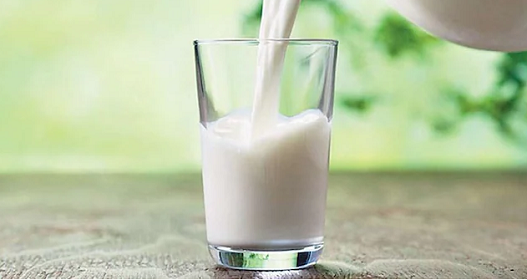
Keeping cattle is a time-honored cultural tradition in western Uganda, where the iconic long-horned animals are associated with royalty—and valued for far more than the milk they produce. But as families shift to commercial farming to meet the nation’s steadily rising demand for milk, many of them need advice on techniques that will help fortify milk production.
Joseph Nsereko, a farmer in Mbarara, used to be one of those farmers looking for support. He struggled to increase milk production to beyond 180 liters per day from a dairy herd of around 30 cows. Pearl Dairy, a milk processor that depends on local farmers for a sustainable, steady supply of milk, reached out to train Nsereko. With Pearl Dairy’s guidance—including direct engagement and access to regular agricultural extension services—he doubled his farm’s daily raw milk output.
IFC began working with Pearl Dairy six years ago, when the company received an $8 million financing package from IFC and the Global Agriculture and Food Security Program (GAFSP) Private Sector Window, which is supported by the governments of Australia, Canada, Japan, the Netherlands, the United Kingdom, and the United States. This supported the establishment of a powdered milk processing plant and related infrastructure with a daily handling capacity of 240,000 liters.
IFC supplemented the investment with advisory services in 2017, when it worked with Pearl Dairy to launch the Dairy Development Program. The program helped train 50 “dairy development executives” that are now advising 500 farmers on techniques to improve productivity and adopt good agricultural practices. The goal is to increase farmer productivity, create a stable supply base of 1,000 dairy farmers providing high-quality raw milk, and reach another 5,000 farmers with advice.
IFC’s support has helped Pearl Dairy create 150 direct jobs and improve the livelihoods of more than 10,000 farmers in remote rural areas. By providing market access and technical support, the company is helping integrate farmers into export markets and reducing the gap between world market prices and the prices Ugandan dairy farmers receive. The project contributes to food security by increasing local consumption of milk and other dairy products, ultimately raising the nutritional intake of the local population.
By 2021, milk output from Pearl Dairy’s existing suppliers in the region is expected to increase by 100,000 liters a day and drive a $3 million annual increase in farmers’ revenues.
A Taste for New Markets
Uganda’s dairy sector—a source of household nutrition and income—plays a key role in the lives of citizens. But although the dairy industry has maintained an average positive growth rate of 3 percent per year and the Ugandan government promotes its development, the sector has not yet reached its full potential.
Dairy production is dominated by small-scale farmers living in impoverished rural areas, and it is estimated that only 20 percent of the country’s milk output is processed. Strategic support for the sector will help it improve milk quality and help reduce variability in production by season.
Pearl Dairy has tailored its approach to the needs of its milk suppliers. One key to the company’s success has been its direct engagement with farmers. Farmers are trained in techniques to improve quality—like sieving milk, animal husbandry, record keeping, and general hygiene around the farm.
“Milk yield has increased from when we started offering advisory and hands-on training,” said Glorious Ankunda, a dairy development executive at Pearl.
Current raw milk production capacity among suppliers is seven to eight liters per cow per day, from less than four liters before Pearl Dairy began its outreach. With guidance from Pearl Dairy, trainers believe it will be possible for Uganda to approach best-in-class productivity of 20-25 liters per cow per day.
Pearl Dairy also offers farmers incentives to deliver more milk at higher quality. These include pre-negotiated financing with local microfinance institutions for farm improvements, with guaranteed repayments from milk proceeds; timely payments, and improved logistics through additional milk collection centers adjacent to dairy farms.
Source: International Finance Corporation. Article first published in 2019






